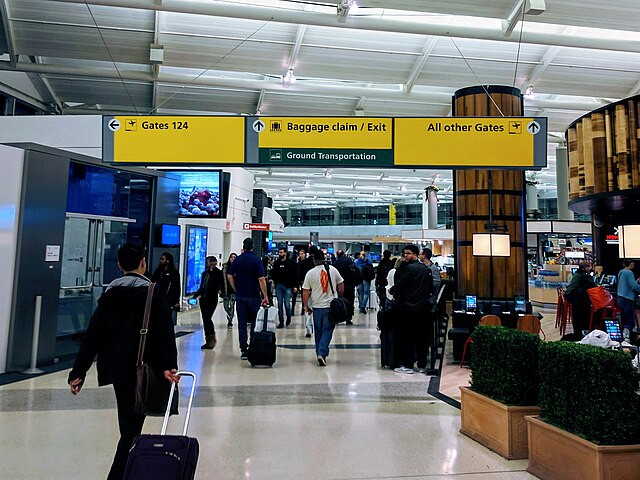Flights in and out of Newark Liberty International Airport were again severely disrupted Monday as air traffic control staffing shortages, outdated technology, and poor weather conditions converged to cause cascading delays. The Federal Aviation Administration issued a ground stop early in the day due to low cloud cover, which was later lifted, but continued to forecast inbound delays of nearly four hours.
Newark, the nation's 14th busiest airport, has experienced persistent operational chaos for over a week, with more than 130 cancellations and 200 delays recorded by midmorning Monday, according to FlightAware. Over the weekend, the airport saw 225 cancellations and 950 delays.
"This is an emergency that requires immediate action and attention," said Sen. Chuck Schumer, who on Monday called on the Department of Transportation's Office of Inspector General to investigate the situation. "The chaos at Newark could very well be a harbinger if issues like these aren't fixed, and if the FAA can't get real solutions off the ground."
United Airlines, which operates a major hub at Newark, has borne the brunt of the disruptions. CEO Scott Kirby said in a letter Friday, "There is no way to resolve the near-term structural FAA staffing issues." Kirby revealed that more than 20% of FAA air traffic controllers at Newark had walked off the job, compounding long-standing staffing shortages and exposing vulnerabilities in the airport's infrastructure.
"These challenges are not new to Newark. United has been urging the US government for years to use its authority to effectively limit the number of flights to what the airport can realistically handle," Kirby stated. United has voluntarily reduced its schedule at Newark, cutting 35 round-trip flights per day to minimize further disruption.
FAA technology failures have added to the turmoil. "In the past few days, on more than one occasion, technology that FAA air traffic controllers rely on to manage the airplanes coming in and out of Newark airport failed," Kirby wrote. These outages resulted in "dozens of diverted flights, hundreds of delayed and canceled flights and worst of all, thousands of customers with disrupted travel plans."
Transportation Secretary Sean Duffy acknowledged last week that the FAA is short 3,000 air traffic controllers nationwide. "We're hoping in three to four years we can get to full staffing, not 20 years," Duffy said at a press briefing Thursday. He added that the agency is working on incentives to retain experienced controllers and expand hiring efforts.
In the meantime, the FAA has required airlines to reduce flights into New York City airspace, a measure already in place at JFK and LaGuardia, which operate under slot controls. Newark, which lacks such regulatory caps, has faced chronic over-scheduling.
The situation has been exacerbated by maintenance workforce cuts that affected personnel responsible for supporting FAA technology systems. Though the layoffs did not include tower controllers, union officials said the equipment outages stemmed partly from diminished technical support capacity.
Duffy said a major announcement regarding new air traffic control systems is expected later this week, with hopes to modernize Newark's infrastructure-though implementation could take years.
CNN and USA Today contributed to this report.




